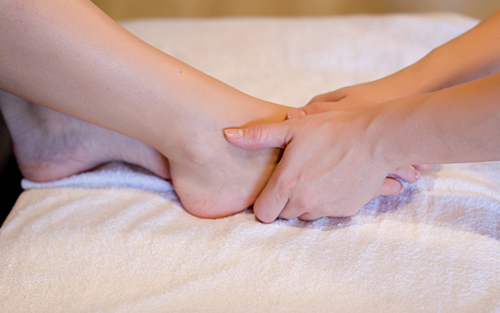Prevent slipping into depression or allowing anxiety to cause confusion and angst in your life. Knowing how to recognize and deal with anxiety will help you remove its triggers and find relief from its destructive nature.

yourfootpalace.com gathered crucial information on the definition, causes, and ways to find relief from anxiety.
What is Anxiety?
Anxiety is an overwhelming feeling of fear, dread, and uneasiness. It can cause you to sweat, feel restless and tense, and have an increased heartbeat. Anxiety can be a normal reaction to mounting stress. You might feel anxious when confronted with a family illness diagnosis, a challenging problem at work, before taking an important test, or before making a crucial decision.
Note: Anxiety can be perfectly normal in stressful situations like public speaking or taking a test. Anxiety is only an indicator of an underlying disease when your feelings become excessive, consuming, and interfere with your routines and daily living.
What Causes Anxiety?
Highly challenging experiences in childhood, adolescence, or adulthood are common triggers for anxiety problems. Experiencing stress and trauma when you’re at a very young is likely to have a tremendous and long-term impact. Experiences that can trigger anxiety problems include traumatic accidents, physical or emotional abuse, etc.
What is an Anxiety Disorder?
An anxiety disorder is a mental health condition. If you have been diagnosed with an anxiety disorder, you may respond to specific things, sounds, and situations with fear and dread. You may also experience physical signs of anxiety, like an accelerated heart rate and sweating.
It is perfectly normal to experience some anxiety. As previously mentioned, you may feel anxious or nervous if you have to tackle a problem at work, go to an interview, or make an important decision. And this anxiety can work to your benefit. Anxiety can help you notice dangerous situations and will help you focus your attention so you stay safe.
Are Anxiety Disorders Common?
Yes. Anxiety disorders are among the most common mental health conditions in the U.S. They affect about 40 million Americans. These conditions happen to nearly 30% of all adults at some point. Anxiety disorders will most often begin in childhood, adolescence, or early adulthood.
Anxiety Management and Treatment
An anxiety disorder is similar to any other health problem that requires treatment. Though tips may help in managing your anxiety, it’s not often something you can just will away; this condition is not a matter of self-discipline or attitude. Researchers have made significant progress (in the last few decades) in treating mental health conditions. Your healthcare provider can tailor a treatment plan that works for you. Your plan may combine medication and psychotherapy.
Medications for anxiety disorders often include:
• Anti-anxiety medications, like benzodiazepines, can significantly decrease your anxiety, panic, and worry. They work quickly, but your body can build up a tolerance to them and that makes them less effective with time. Your doctor may prescribe an anti-anxiety medication for the short term, then taper you off, switch the medication, or add an antidepressant to the mix.
• Antidepressants can also help you minimize or overcome anxiety disorders. They alter how your brain uses specific chemicals to improve your mood and reduce stress. Antidepressants may take some time to work, and if you feel like you need to stop taking antidepressants, talk to your provider first.
• Beta-blockers, typically used for high blood pressure, can help minimize some of the physical symptoms associated with anxiety disorders. They can slow your rapid heartbeat, reduce shaking, and stop you from trembling.
Note: Never start or cease any prescription medication without first consulting your primary care physician.
•Cognitive Behavioral Therapy (CBT) is among the most effective form of psychotherapy for anxiety disorders. This is generally a short-term treatment. CBT focuses on teaching you skills that improve your symptoms and gradually allow you to return to the activities you’ve avoided because of anxiety.
Other ways to calm your anxiety include:
- Use some relaxation and breathing techniques (consult a licensed physical therapist)
- Avoid caffeine (coffee, colas, chocolate, tea, etc.)
- Avoid alcohol and unprescribed medications
- Avoid nicotine (cigarettes, chew, snuff, cigars, etc.)
- Adopt and maintain a healthy, balanced diet
- Question and challenge your thoughts
- Share your feelings with a loved one
- Participate in regular therapy sessions
- Relax and take regular spa days
- Get regular couples massages with someone you can talk to
- Maintain a regular sleep schedule
- Increase your physical activity

Finding ways to channel or avoid your anxiety quickly can help you remain stable, productive, and more self-aware.
Ways to Treat Anxiety
In this article, you discovered information about what anxiety is, what causes it, and how you can find relief.
Identifying that you have a problem with anxiety is the first crucial step to understanding it and seeking the help and treatment you may require.
Ignoring the symptoms of anxiety can leave you depressed, dwelling on your thoughts, and creating challenges in your life.
*Disclaimer: No content on this publication, page, or site, regardless of date or topic, should ever be used as a substitute for direct medical advice from your primary care physician or other qualified clinicians.
Sources:
mayoclinic.org/diseases-conditions/anxiety/diagnosis-treatment/drc-20350967
my.clevelandclinic.org/health/diseases/9536-anxiety-disorders
adaa.org/tips
medlineplus.gov/anxiety.html
(706) 521-5290
(678) 963-5958
To view the original version on Foot Palace, visit: https://yourfootpalace.com/anxiety-definition-causes-and-relief/
No comments:
Post a Comment
Note: Only a member of this blog may post a comment.